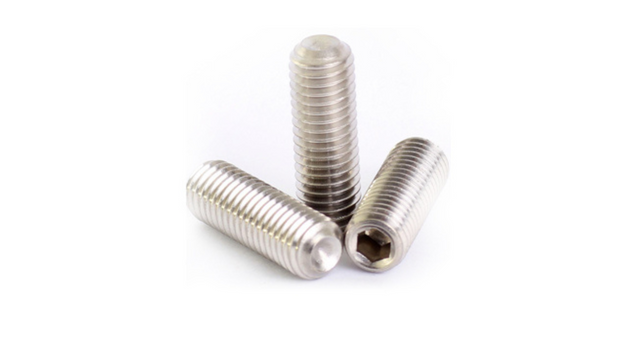Benefits of Using High Strength Threaded Fasteners in Construction
Threaded fasteners are a cornerstone of modern construction, providing critical support in various structural applications. Among these, high strength threaded fasteners stand out due to their exceptional durability and load-bearing capabilities. This blog delves into the key benefits of using high strength threaded fasteners in construction projects, highlighting why they are preferred over standard fasteners.
What Are High Strength Threaded Fasteners?
High strength threaded fasteners are engineered to endure extreme stress and maintain structural integrity under demanding conditions. They are typically made from alloy steels or other high-performance materials and are designed to withstand greater loads compared to standard fasteners. Their superior strength is achieved through advanced manufacturing processes, including heat treatment and precise threading techniques.
Durability and Load-Bearing Capacity
One of the primary advantages of high strength threaded fasteners is their enhanced durability. In construction, structural components are subject to various forces, including tension, shear, and compression. High strength threaded fasteners are designed to handle these forces without compromising their integrity. This makes them ideal for use in critical applications such as steel structures, bridges, and high-rise buildings, where failure of a fastener could lead to catastrophic results.
Their ability to support high loads also means that fewer fasteners are needed to achieve the same level of strength, which can simplify the design and reduce material costs. This load-bearing capacity is particularly important in projects involving heavy machinery, large structures, or environments with significant stress factors.
Enhanced Safety and Reliability
Safety is a paramount concern in construction, and high strength threaded fasteners contribute significantly to overall structural reliability. Their robust design ensures that they maintain their performance over time, even under adverse conditions such as temperature fluctuations, corrosion, and vibration. This reliability helps to prevent structural failures that could endanger workers and occupants.
In addition, high strength threaded fasteners undergo rigorous testing and quality control to ensure they meet stringent safety standards. This testing includes checking for tensile strength, shear strength, and fatigue resistance, among other factors. By choosing high strength fasteners, construction professionals can be confident that they are using components that meet or exceed industry standards.

Corrosion Resistance and Longevity
Construction projects often involve exposure to harsh environmental conditions, such as moisture, chemicals, and extreme temperatures. High strength threaded fasteners are designed to resist these factors, thanks to advanced coatings and materials that provide superior corrosion resistance. For instance, fasteners made from stainless steel or those coated with protective layers can withstand the effects of rust and degradation.
This corrosion resistance not only extends the lifespan of the fasteners but also reduces the need for frequent maintenance and replacements. As a result, construction projects can benefit from lower long-term costs and reduced downtime associated with repairs and replacements.
Versatility in Applications
High strength threaded fasteners are versatile and can be used in a wide range of construction applications. They are suitable for various materials, including concrete, steel, and wood, making them adaptable to different project requirements. Their design also allows for ease of installation and removal, which is beneficial in both new construction and renovation projects.
For example, in steel construction, high strength bolts are commonly used to connect structural beams and columns, providing the necessary strength to support the structure. In concrete construction, high strength anchors are used to secure fixtures and fittings, ensuring stability and alignment.
Cost-Effectiveness
While high strength threaded fasteners may have a higher initial cost compared to standard fasteners, their benefits often outweigh the investment. Their durability, load-bearing capacity, and corrosion resistance contribute to overall cost savings by reducing the need for replacements and maintenance. Additionally, their ability to simplify design requirements and decrease the number of fasteners needed can result in cost savings on materials and labor.
Environmental Considerations
The construction industry is increasingly focused on sustainability and environmental impact. High strength threaded fasteners can contribute to these goals by enhancing the durability and longevity of structures, which can reduce the frequency of repairs and replacements. This not only conserves resources but also minimizes waste generated from discarded fasteners and components.
High strength threaded fasteners offer numerous benefits for construction projects, including exceptional durability, enhanced safety, corrosion resistance, versatility, cost-effectiveness, and environmental advantages. Their ability to withstand high loads and harsh conditions makes them a valuable choice for ensuring the stability and longevity of structures.
By opting for high strength threaded fasteners, construction professionals can enhance the reliability and performance of their projects, ultimately contributing to safer and more sustainable construction practices. Whether you are working on a large-scale infrastructure project or a smaller renovation, the advantages of using high strength threaded fasteners are clear and compelling.